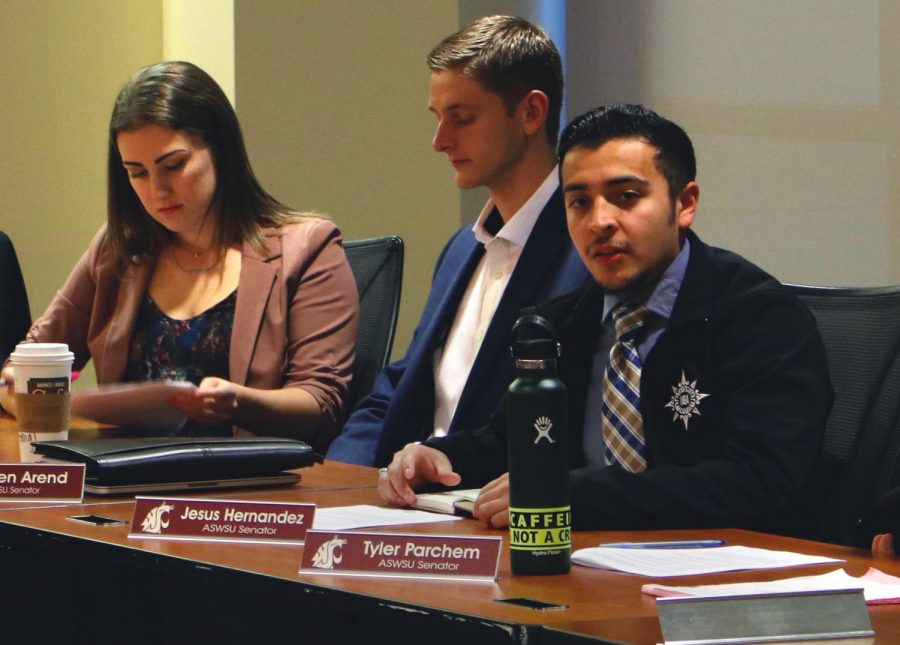Cultural competency brings understanding
Resolution to bring change to campus by making people aware of different cultures, implicit bias
OLIVER McKENNA | Daily Evergreen File
Sen. Jesus Hernandez proposed a bill that would require cultural competency training for all WSU staff, faculty and incoming students. The resolution was passed by the end of the Oct. 11 ASWSU meeting.
October 24, 2017
The cultural competency training proposed by ASWSU earlier this month, if put into place, is a step toward creating a campus environment that is understanding of the cultural diversity at WSU. We all have biases that influence the way we perceive others, and a key part of this training would be recognizing these biases.
Carson College Sen. Kacie Kubosumi, along with her colleague Sen. Jesus Hernandez, proposed the bill. Kubosumi said that the idea was born primarily in response to the August sit-in led by multicultural groups on campus. During the demonstration, students and staff spoke out against hate speech and sought to foster a more diverse environment on campus.
Kubosumi said that many students don’t realize how much the perspective they have before coming to WSU can affect the way they interact with others, and stressed that this training would be about addressing the little things.
“People think this is about not stepping on other peoples’ toes,” Kubosumi said, “but it is really about recognizing implicit biases.”
Implicit biases are views that individuals have toward people of other races, cultures or ethnicities that may unconsciously influence their perception of these people. Typically, people holding these biases aren’t aware of the fact that they have them. Cultural competency training would seek to address this isssue and make WSU students more aware.
People, especially those who have come from privileged backgrounds, can often be blind to these biases. For example, white people often don’t see or recognize the ways people of color are discriminated against.
“Charlottesville made white supremacy real for white people,” cultural studies professor Pam Bettis stated in an email. “People of color have understood and lived white supremacy for a long time.”
In addition, a number of students at WSU have already taken cultural competency classes in preparation for jobs on campus. Kubosumi said that she took the training before becoming an orientation counselor.
Being culturally conscious is the expectation for people entering the workforce and a variety of social environments. Providing cultural competency training not only helps create a more open-minded campus, but also prepares students for their professional careers. Being socially aware is critical in the workplace, and part of a university’s purpose is to prepare students for their careers.
Kubosumi also said that some universities around the country have already taken major steps toward improving cultural understanding for students.
“In the PAC-12, we’re kind of middle of the pack,” Kubosumi said. She added that some California schools offered similar classes for students.
One of the biggest concerns about implementing a new required training for students is the cost. However, Kubosumi said that she and the other ASWSU senators expect the class to cost little to nothing for students.
She said she hopes to have a pilot program for the training implemented this spring for the “Alive!” sessions taking place during the semester, and, if the program is successful, plans to have the classes fully in place by the summer, allowing incoming freshmen to receive the training.
Cultural competency is an important skill in helping transition students to the diversity at WSU. By offering these programs, the university can help foster an environment that is understanding, welcoming and educated, and help our students recognize, respect, and appreciate our differences.









